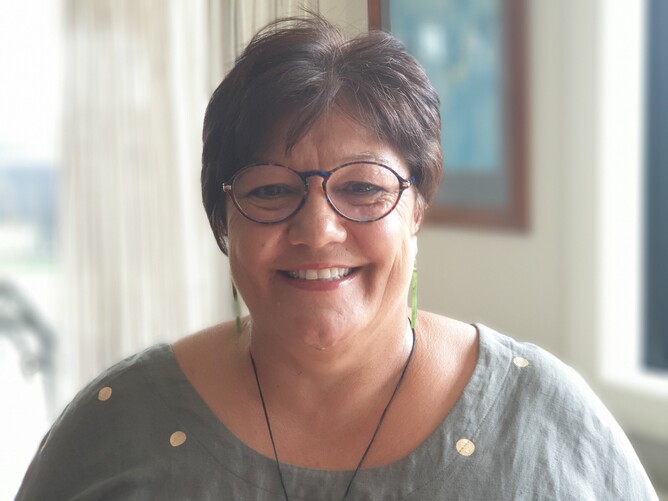Braemar Charitable Trust believes in building capacity and capability within the wider health sector. Not only do we provide funding for ongoing medical practitioner professional development, we are also committed to supporting the next generation of health professionals, recognizing that they are key to improving health outcomes in our community.
An example of this support is found through Braemar’s funding of tertiary scholarships at the University of Waikato.
Karen Turanga, Ngāi Tahu, is a student at the University of Waikato, undertaking a Bachelor of Health and Population Studies. She is also the 2021 recipient of the Braemar Charitable Trust’s Bachelor of Health Scholarship, one of several scholarships we established at the University to support the future of healthcare in the region.
The Scholarship, worth $10,000, has helped ease the financial pressure of studying for Karen by providing funding for fees and study materials, meaning Karen can focus completely on her studies.
Karen plans to use the Scholarship to continue her studies which broadly address the issue of healthcare inequities in NZ’s Māori populations.
As we continue to work to improve health outcomes in the community, we are extremely proud to support Karen in her tertiary journey and look forward to seeing her succeed in future endeavors.
Karen is also one of the first Waikato University students to be awarded the opportunity to conduct summer research funded by the Braemar Charitable Trust. Over the next few months, Karen aims to answer the question “What are the barriers to improving the dental care of patients with rheumatic heart disease?”
Rheumatic heart disease is a condition whereby a person’s heart valves are damaged permanently as a side effect of rheumatic fever.
Rheumatic fever is a preventable and serious illness caused by a strep throat. It mainly affects Māori and Pacific children between 4-19 years, and those affected can go on to have rheumatic heart disease requiring heart valve surgery. The importance of dental health and its effect on systemic diseases such as rheumatic heart disease in the Waikato has prompted this research.
Largely uncommon in many 1st world countries, this research may help reduce the occurrence of rheumatic fever patients progressing to rheumatic heart disease by identifying the barriers to good oral health.
Karen’s research will investigate the barriers faced by rheumatic heart disease patients in the Waikato to obtain regular oral healthcare, by assessing dental care needs within the target group. This will help identify whether it is treatment costs, whakamā (embarrassment or shyness), transportation, or any other barrier that may contribute to oral health outcomes affecting rheumatic heart disease progression.

